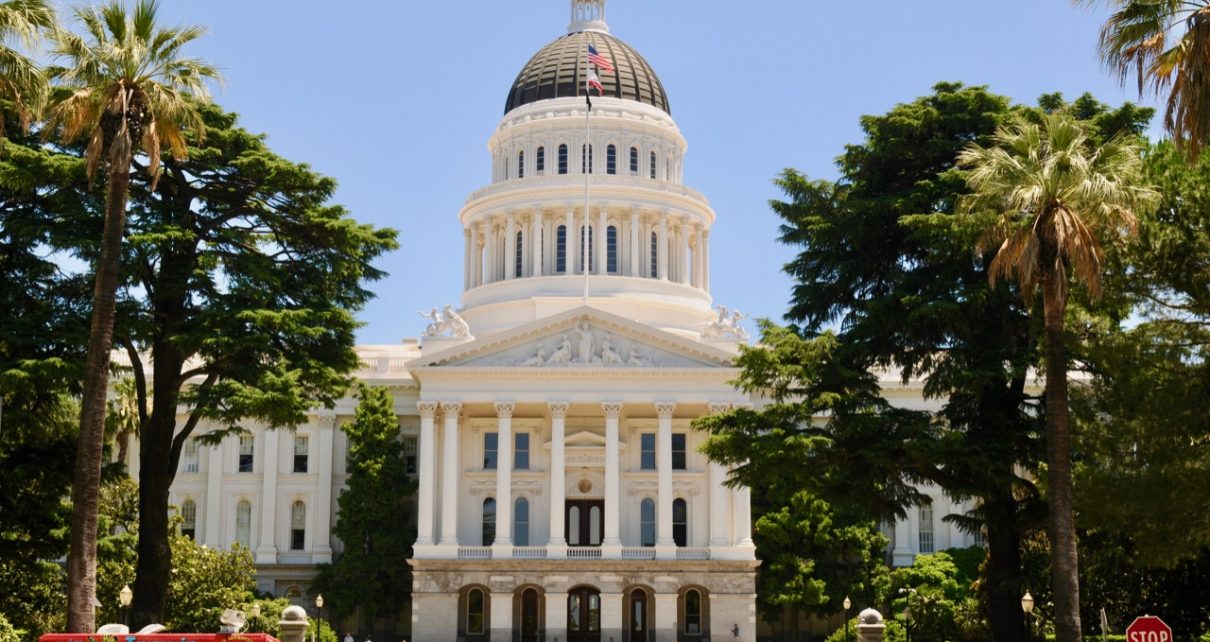
California State Capitol. (Photo: Kevin Sanders for California Globe)
Exploring the Lobbyist–Client Relationship
Defined roles and agreed-upon expectations are crucial
By Chris Micheli, August 22, 2021 2:45 am
By Ray LeBov and Chris Micheli
Based upon our years working as both in-house and as contract lobbyists, we offer a series of observations and recommendations regarding the lobbyist-client relationship. Probably the most importance advice we can give is that expectations need to be set by both parties and for those expectations to be set early.
What does the client expect from the lobbyist? What does the client need or want? Sometimes that question is easy and clear – pass or defeat a specific bill. However, other times, it may be less clear. In other instances, do they want to increase their presence or make certain relationships?
At a minimum, the client expects to be treated with respect, be kept apprised of all major developments, and not have a lobbyist who has a conflict in representing the client.
We have also found a number of the “Obligations to the Client” requirements to be helpful. These are found in the Code of Conduct that is ascribed to by member of the Institute of Governmental Advocates (IGA). First, the lobbyist has definite ethical obligations to a client. Be truthful and follow the law. Protect confidential and proprietary information.
Second, the lobbyist should be an effective representative for the client. She or he must have knowledge and competence throughout the legislative process when representing the client. Staying informed is a critical component of that work. Tell your client everything relevant to your joint mission and always be truthful. Counseling your client and setting expectations are critical.
The lobbyist’s goal should be to under promise and overdeliver. Do not set unreasonable expectations or suggest something that cannot realistically be achieved. That does not bode well for a successful engagement between the lobbyist and the client.
In regard to major decisions, remember that the client is the “boss” (it is their money and interest that is at stake). The lobbyist is expert in navigating the legislative terrain so his or her role in regard to decisions is to advise and counsel the client. The client should have ultimate authority to make the big decisions and those should be informed by the best information shared by the lobbyist.
Some clients are based in or frequently visit Sacramento. This type of client may want or expect to be heavily involved in participating in the lobbying effort, beyond developing and adopting strategy. For example, they might want to be directly involved in legislative meetings. They might want to provide testimony. They might want to attend events.
Other clients never come to Sacramento. In fact, they may have never been to the Capitol city at all. The lobbyist is the sole representative of the client, whether in meetings, hearings, or events. Regardless of the location or level of involvement of the client, the lobbyist needs to educate the client about the process and what to expect throughout the legislative process. The more the client understands what happens under the Capitol Dome, the better it will be for both parties to the engagement.
When the client does choose to participate in legislative activities, the lobbyist needs to properly brief the client – what should the client expect? And what are appropriate things to do or not to do. For example, the client who plans to testify before a legislative committee, explain what will happen and what the client should say, and how they should say it. There are other obvious things for the client to know, such as not mixing policy and politics, such as at fundraisers.
As with other topics, there are numerous other issues that could be addressed when discussing the lobbyist-client relationship. The most important things to remember are to have defined roles and to set expectations for both parties in advance.
 Ray LeBov began working in Sacramento in 1975, when he was appointed as counsel to the Legislature’s Joint Committee on the Structure of the Judiciary. He served in various other legislative staff positions until 1991. Since 2006, Ray LeBov & Associates’ Capitol Seminars division has presented its Lobbying 101 and 201 seminars throughout the year in Sacramento and other locations, enabling some 2000 governmental advocacy and public affairs professionals.
Ray LeBov began working in Sacramento in 1975, when he was appointed as counsel to the Legislature’s Joint Committee on the Structure of the Judiciary. He served in various other legislative staff positions until 1991. Since 2006, Ray LeBov & Associates’ Capitol Seminars division has presented its Lobbying 101 and 201 seminars throughout the year in Sacramento and other locations, enabling some 2000 governmental advocacy and public affairs professionals.
- Fish and Game Districts in California - February 15, 2026
- Deposits in Lieu of Bonds in California - February 15, 2026
- Lis Pendens in California - February 14, 2026




LOBBYING
“Although lobbying can be a positive force in democracy, it can also be a mechanism for powerful groups to influence laws and regulations at the expense of the public interest. This may result in undue influence, unfair competition and policy capture, to the detriment of effective policymaking. Transparency and integrity in the decision-making process are crucial to safeguard the public interest. The OECD Recommendation on Principles for Transparency and Integrity in Lobbying provides guidance on how to foster transparency and integrity in lobbying practices.” (https://www.oecd.org/corruption-integrity/explore/topics/lobbying.html)
PREVENTING POLICY CAPTURE
Integrity in Public Decision Making
This report exposes how “policy capture”, where public decisions over policies are consistently or repeatedly directed away from the public interest towards a specific interest, can exacerbate inequalities and undermine democratic values, economic growth and trust in government. It maps out the different mechanisms and risks of policy capture, and provides guidance for policy makers on how to mitigate these risks through four complementary strategies: engaging stakeholders with diverging interests; ensuring transparency and access to information; promoting accountability; and identifying and mitigating the risk of capture through organizational integrity policies. (https://www.oecd.org/corruption/preventing-policy-capture-9789264065239-en.htm)